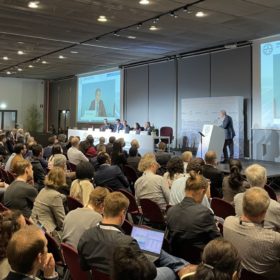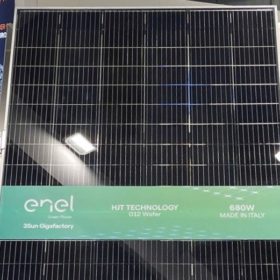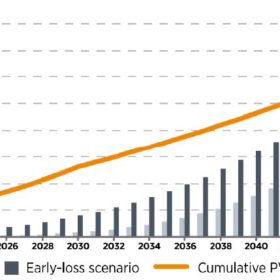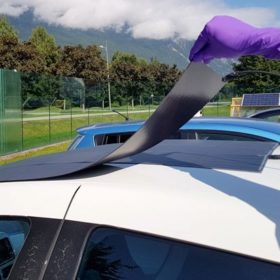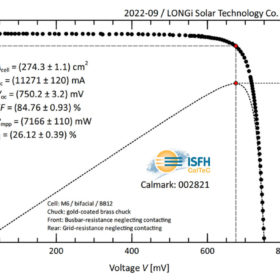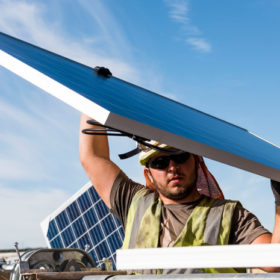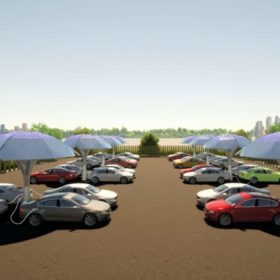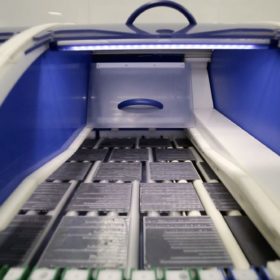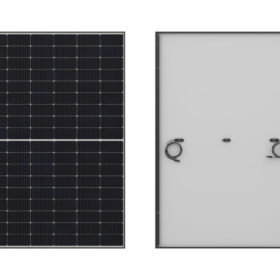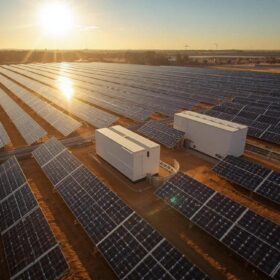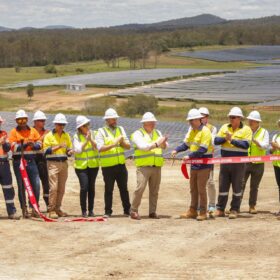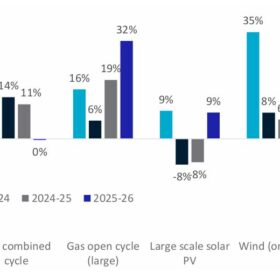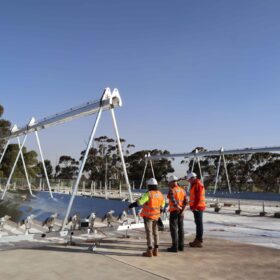‘The first terawatt of solar PV installed globally took some 70 years to achieve, while the second will likely take only three’
Leading solar researchers from around the world are meeting for the first time in four years in Milan, Italy, for the 8th World Conference on Photovoltaic Energy Conversion (WCPEC-8). The first morning has seen prestigious awards bestowed on two scientific leaders and inspirational discussions as to how the “second terawatt” of solar can be installed globally in just a handful of years.
Enel unveils 680 W n-type heterojunction solar panel for utility-scale applications
Enel Green Power’s new solar panel has average efficiencies ranging from 22.6% to 22.9% and a temperature coefficient of -0.24% per degree Celsius. It is based on an n-type solar cell with G12 format and a power conversion efficiency of 24.6%.
IEA PVSP predicts high-cost, low-revenue scenario for solar recycling
A recent report by the International Energy Agency Photovoltaic Power Systems Programme (IEA PVSP) reviews the current regulatory and industrial landscape for end-of-life PV management in Germany, France, Italy, Spain, Japan, South Korea, China, Australia, and the United States.
Vehicle-integrated solar kit may reduce frequency of recharging by 14%
Developed by the French research institute Liten, the prototype kit consists of a 145 W PV panel, a magnetic rear panel, and an MPPT charge controller. It also includes a battery and a micro-inverter that can be used to inject the stored energy into the grid when the vehicle is recharged.
Longi achieves 26.12% efficiency for gallium-doped p-type heterojunction solar cell
The result, confirmed by Germany’s Institute for Solar Energy Research Hamelin (ISFH), was achieved on a heterojunction solar cell based on an M6 wafer.
Solar PV employed about 3.4 million people in 2021
A new report published by the International Energy Agency shows solar PV provided employment for approximately 3.4 million people in 2021 with almost half of the workers employed in China, about 280,000 in North America, over 260,000 in Europe, and some 50,000 in Africa. The vast majority of workers were employed in manufacturing and installation of new capacity, with solar jobs paying lower wage premiums than the nuclear, oil, and gas industries.
FTC Solar unveils new self-powered tracking system
United States-based engineering firm FTC Solar has unveiled a new self-powered solar tracking system which it says requires up to 36% fewer foundations than existing technologies and enables an estimated 5% greater energy output for a given parcel of land.
UK startup unveils solar trees for commercial, industrial areas
United Kingdom-based SolarBotanic Trees will begin offering its solar trees in early 2023. The systems will use monocrystalline cells with an efficiency of up to 24%, encapsulated in a 3D shape.
Amp Energy to manufacture solar cells, modules
The developer of a planned 1.3 GW renewable energy hub in South Australia has agreed to partner with India-based PV solar cell and module manufacturer Websol Energy to produce up to 1.2 GW of cells and modules to help it to better control the supply chain of critical components.
Sharp unveils black-framed 410 W half-cut solar panels
Sharp’s newest PV modules feature white backsheets and are made for the needs of design-oriented customers.
